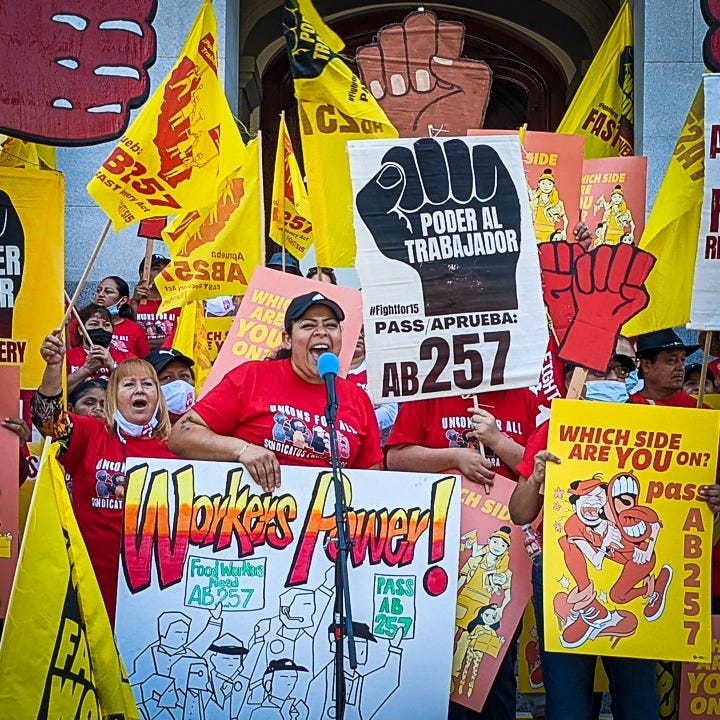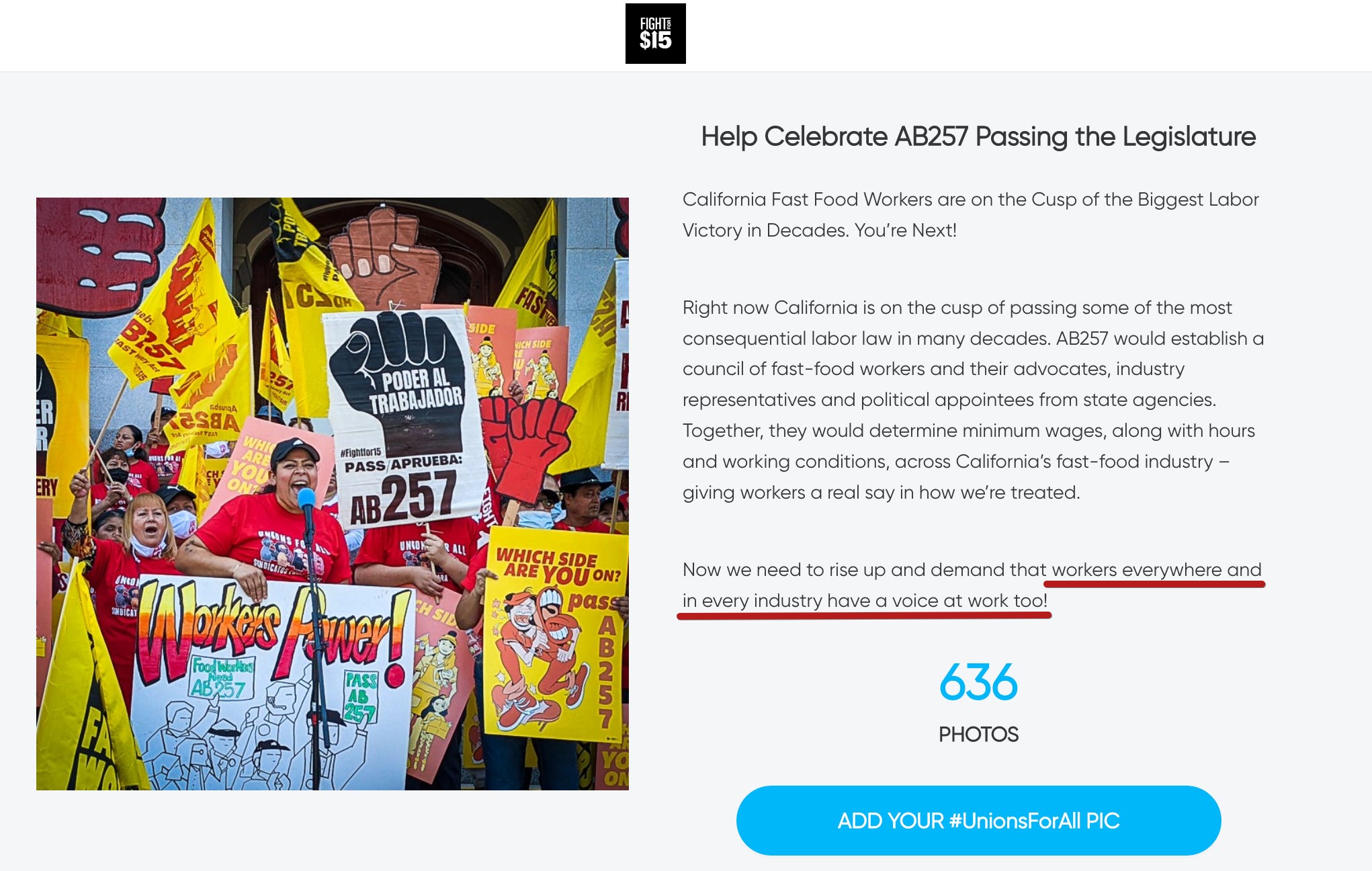Fundamental Transformation, Part I: For Unions, California's Fast-Food Council May Be Just The Beginning of State-Controlled Sectoral Bargaining Across the U.S.
Sectoral Bargaining in other industries nationwide is the goal.
There is a “fundamental transformation” of the American economy that is occurring piece by piece and, last week, a significant part of it (AB257) was enacted in California.
It begs the question: Will putting a government bureaucracy—for now, at the state level—in charge of dictating wages, benefits and other working conditions over the private-sector businesses of an entire industry help or hurt that industry and the workers within it?
Background. On Labor Day, California’s governor Gavin Newsom signed into law Assembly Bill 257 (AB257), establishing ‘sectoral bargaining’ over the fast-food industry in California.
For AB257’s primary backer and co-sponsor [in PDF], the Service Employees International Union (SEIU) and its affiliated Fight for $15, it was a significant victory and, as well, marked the beginning of a push to bring ‘sectoral bargaining’ to other industries across the United States.
Immediately following Governor Newsom’s signing of AB257, the Fight for $15 organizers sent a text out to its followers with a link to this:
“California Fast-Food Workers Just Won the Biggest Labor Victory in Decades! You're Next!
Governor Newsom just signed AB257 in to law. It will establish a council of fast-food workers and their advocates, industry representatives and political appointees from state agencies to determine minimum wages, along with hours and working conditions, across California's fast-food industry – giving workers a real say in how we're treated.
Now we need to rise up and demand that workers everywhere and in every industry have a voice at work too! Add your name here to tell your state and local elected officials that you want to see Unions For All where you live too!” [Emphasis added.]
While the SEIU was the primary backer of AB257 (actually a “co-sponsor”), the bill was also backed by the California Labor Federation.
What is Sectoral Bargaining? To understand the significance of California’s AB257 and the potential impact of sectoral bargaining, it is important to know what it is.
As Vox explains the effects AB257 as “establish[ing] a new state council with the power to set minimum working standards for fast food restaurants across California, including wages up to $22 per hour.” [Emphasis added.]
The Center for American Progress’ CAP Action defines sectoral bargaining as follows:
Sectoral bargaining—also known as multiemployer, industrywide, or broad-based bargaining—is a form of collective bargaining that provides contract coverage and sets compensation floors for most workers in a particular occupation, industry, or region.
While broad-based bargaining can—and sometimes does—occur in the United States, current labor laws emphasize enterprise-based bargaining, in which unions negotiate with individual employers on behalf of a group of workers at a particular worksite. For example, a union might negotiate with a supermarket chain on behalf of workers at a particular store or with a building service company on behalf of janitors in a specific building. With sectoral bargaining, collectively bargained standards extend to every grocery store worker or janitor in the region. [Emphasis added.]
“In sectoral bargaining, unions negotiate with the government and industry-wide associations of employers on contracts that apply to everyone, not just union members,” explains Michael Watson at the Capital Research Center.
In writing about AB257, the U.S. Chamber of Commerce’s Sean Redmond states “it will allow unelected bureaucrats to impose terms on businesses by fiat, and whether these bureaucrats would even understand the implications, economic or otherwise, of their diktats hardly seems likely to be a job qualification.”
While sectoral bargaining is referenced in the Protecting the Right to Organize Act, aka the PRO Act (Section 6), for now, the ability to enact industry-wide government councils across state lines may have to wait.
However, even when he ran for President, Joe Biden vowed to "to further explore the expansion of sectoral bargaining, where all competitors in an industry are engaged in collective bargaining with a single or multiple unions.” [Emphasis added.]
Notwithstanding that California’s AB257 may yet be challenged in court, its passage in California and the imposing of a state-run bureaucracy to set wages and terms and conditions of employment on private businesses within an entire industry is a marked departure from an existing, albeit-regulated, free market system.
If sectoral bargaining is further imposed on other industries in other states where Democrats enjoy super majorities in state governments and union-friendly governors, it would be a significant and fundamental transformation of America’s quasi-free enterprise system.
Whether that turns out to help or hurt the businesses and workers in a particular affected industry remains to be seen.





